Brussels rendezvous: NATO assures Pakistan of strategic alliance
In meeting with Khar, Rasmussen says alliance will not leave security vacuum in post-2014 Afghanistan.

The North Atlantic Treaty Organisation (Nato) is committed to turning its relationship with Pakistan into a strategic partnership, said the alliance’s chief on Monday.
Nato also wants to reinvigorate its political dialogue with Pakistan and to move beyond 2014, Andre Fogh Rasmussen said in a meeting with Foreign Minister Hina Rabbani Khar at the Nato headquarters in Brussels.
Rasmussen commended Pakistan’s counter-insurgency operations and held out an assurance that Nato would remain a steadfast partner of Pakistan in their common fight against terrorism and extremism, according to a foreign ministry in Islamabad.
“Most urgently, we need to remain united to defeat terrorism,” he said. “At Nato, we understand well that Pakistan has paid a high price in these efforts. The alliance stands together with you to combat this scourge,” he added.
It is “clear that the pursuit of peace and security in your region is in the interest of the broader international community. That includes peace in Afghanistan, where Pakistan has a particular role to play,” he said.
Addressing Pakistan’s concerns about post-2014 Afghanistan, Rasmussen assured that the alliance would not leave a “security vacuum” in the country after the withdrawal of its troops.
He also welcomed the recent release of some mid-level Taliban cadres from Pakistani prisons in a bid to facilitate the Afghan High Peace Council’s efforts to make peace with the Taliban.
On her part, Foreign Minister Khar said Pakistan was committed to working closely with Nato for the common objective of peace and stability in the region, particularly in Afghanistan.
She briefed the Nato secretary-general about Pakistan’s commitments to improving relations with Afghanistan. Sincere efforts are being made by Pakistan to build trust between the two countries at all levels, she added.
Gen Kayani for Afghan-led solution
Separately, army chief Gen Ashfaq Parvez Kayani said that an “Afghan owned and Afghan led” reconciliation process was the only way forward to seek an end to the long and costly war in Afghanistan.
Addressing a joint meeting of the Political and Security Council and the European Union (EU) Military Committee in Brussels, Gen Kayani gave Pakistan’s perspective on the Afghan endgame and its implications on regional peace and security.
According to the Inter-Services Public Relations (ISPR), Gen Kayani participated in an interactive session attended by ambassadors and delegations comprising defence and military officials of the 27-nation bloc.
Speaking at the forum, Gen Kayani said Pakistan would support an Afghan-owned and led reconciliation process in the war torn country.
His remarks indicate that Pakistan is wary of US efforts to impose a solution of its own choosing in Afghanistan.
Military sources said Gen Kayani’s speech not only highlighted that Pakistan was against outside interference in Afghanistan but also suggested that the country would only be a facilitator, not leader, in the reconciliation process.
Pak-US Defence Consultative Group meeting
While Gen Kayani spoke in Brussels, a two-day meeting of Pak-US Defence Consultative Group began in Rawalpindi on Monday to discuss the regional security situation, including Afghanistan.
The group, which is part of overall strategic dialogue between the two countries, will discuss the transition leading to the withdrawal of US-led foreign forces from Afghanistan by 2014, said a senior security official.
The 25-member US delegation is led by Dr James Miller, the undersecretary of defence for policy, alongside Richard Olson, US Ambassador to Pakistan. Defence Secretary Lt Gen (Retd) Asif Yasin Malik is leading the Pakistani side at the talks.
Khar-Clinton-Kayani meeting
Foreign Minister Khar and Gen Kayani are scheduled to meet US Secretary of State Hillary Clinton later in the night. In the meeting, according to a senior State Department official, Afghanistan would be one of the key subjects of discussions.
The official noted that in the overall context of progress towards Afghan stability, the Pakistan-Afghanistan bilateral relationship was really the most important thing of all.
Describing a slew of high-level exchanges between Pakistan and Afghanistan as “interesting developments’, another State Department official said the US recognised that “the Pakistanis have an important role to play” in Afghan reconciliation.
“I think the fact that they are publicly now - publicly so much willing to talk about an Afghan-led and Afghan-owned peace process, call on the Taliban to get involved in this process, and are having these sort of direct contacts with the Afghans, is all to the good.” (with additional reporting by our correspondents in Islamabad and Washington DC)
Published in The Express Tribune, December 4th, 2012.

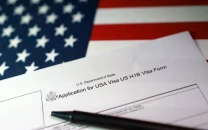
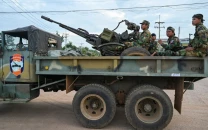

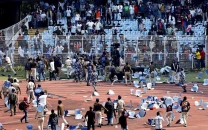
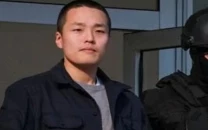
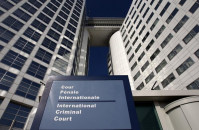


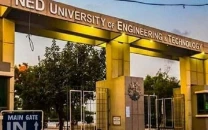








COMMENTS
Comments are moderated and generally will be posted if they are on-topic and not abusive.
For more information, please see our Comments FAQ